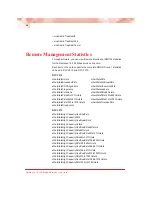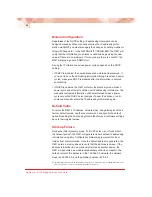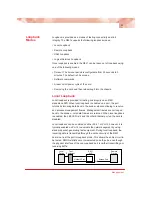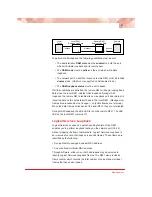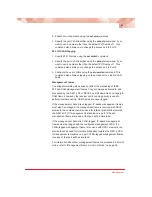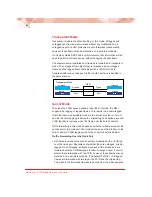
35
Management
Port State
You can independently enable or disable the port state on either port of
the services line card. Disabling the port state stops the flow of data to
and from that port. Although data is neither sent nor received, the
disabled port continues to accept, process, and transmit management
frames. However, if LLCF is enabled and the opposite port has no link,
management frames will not be transmitted.
Rate Limiting
By default, each port allows data to flow at full line speed. The R821
supports bandwidth management that allows you to restrict the data rate
independently on each port. You can set the maximum speed on a port to
any of the following rates:
128 kbps
2 Mbps
256 kbps
4 Mbps
512 kbps
8 Mbps
1 Mbps
100 Mbps
Rate limiting consists of two parts, the rate and the state, both of which
are configurable. The rate is any of the values listed above. The state
activates or cancels rate limiting. When the rate limiting state is disabled,
the data flows without any restrictions as fast as the link allows, even if
the rate is configured to a slower setting.
When rate limiting is enabled, the data transmission rate does not
exceed the value specified. Because the R821 is a two-port device for
data transmission, setting the limit on Port 1 automatically limits the
egress (outbound) data rate on Port 2 to the same limit. Similarly, setting
the rate limit on Port 2 automatically sets the egress rate on Port 1. For
example, if you set the rate limit on Port 2 to 4 Mbps, the maximum rate
at which data can exit Port 1 will also be 4 Mbps. Port 1 and Port 2 can
be set to different rates.
Local
R821
Remote
R821
Port 1
Port 1
Port 2
Local
Device
Remote
Device
4 M
100 M
8 M
Port 2
Rate Limit
= 8 M
Port 2
Port 2
Rate Limit
= 4 M




